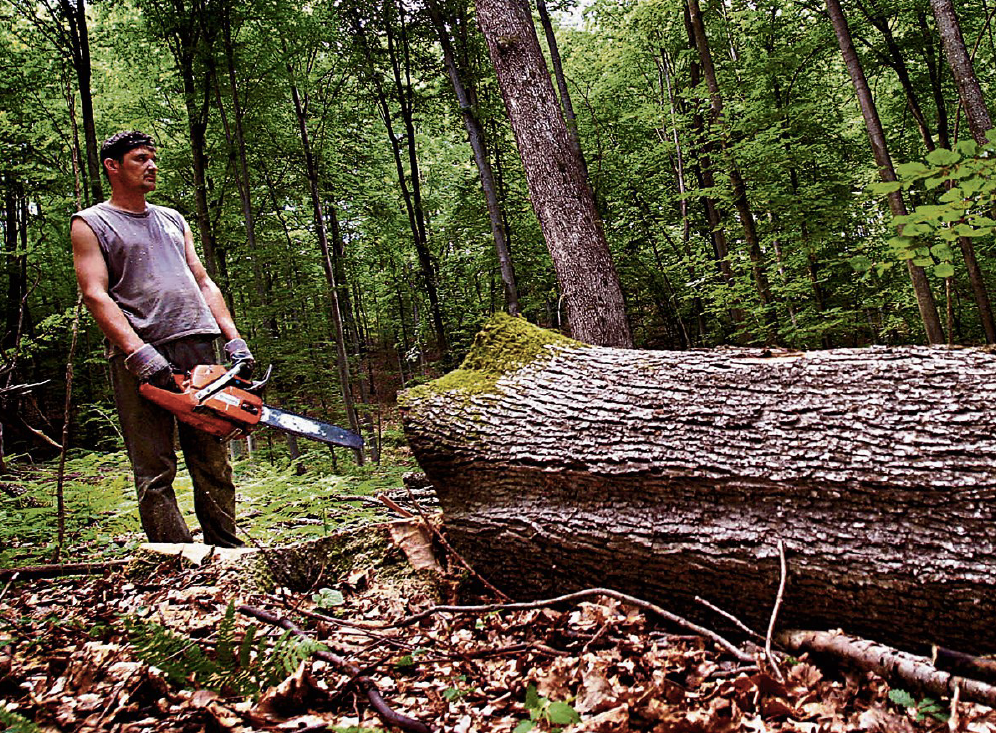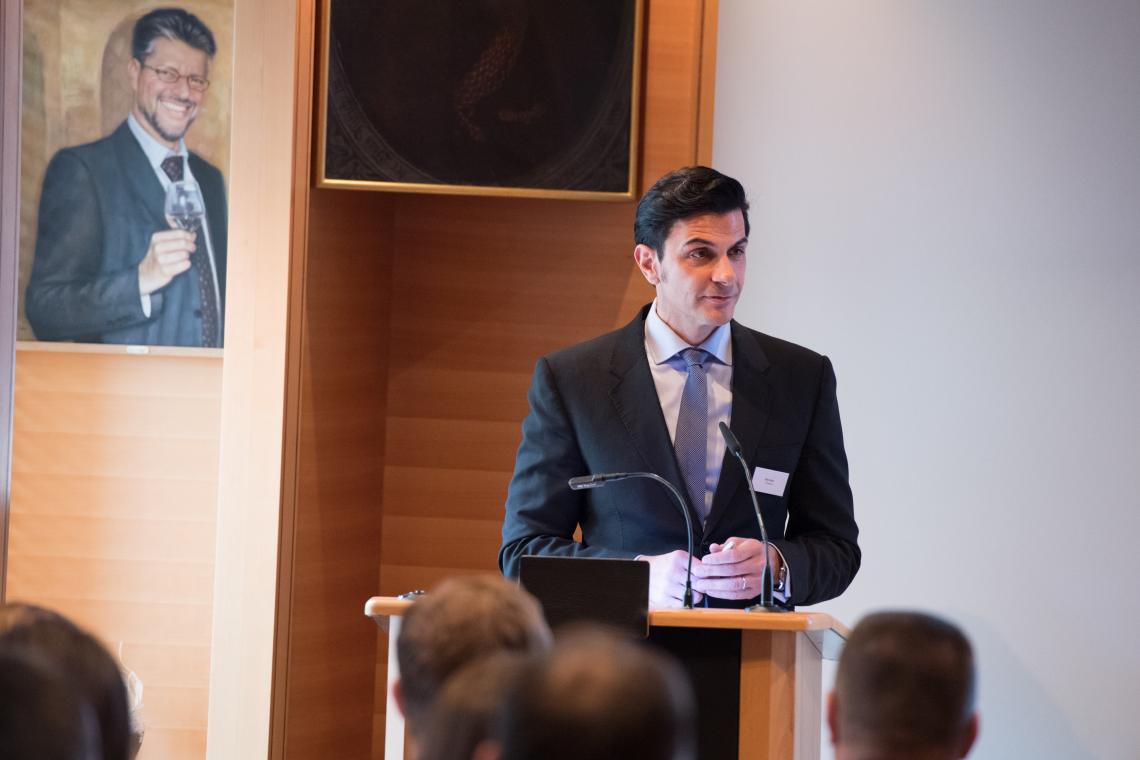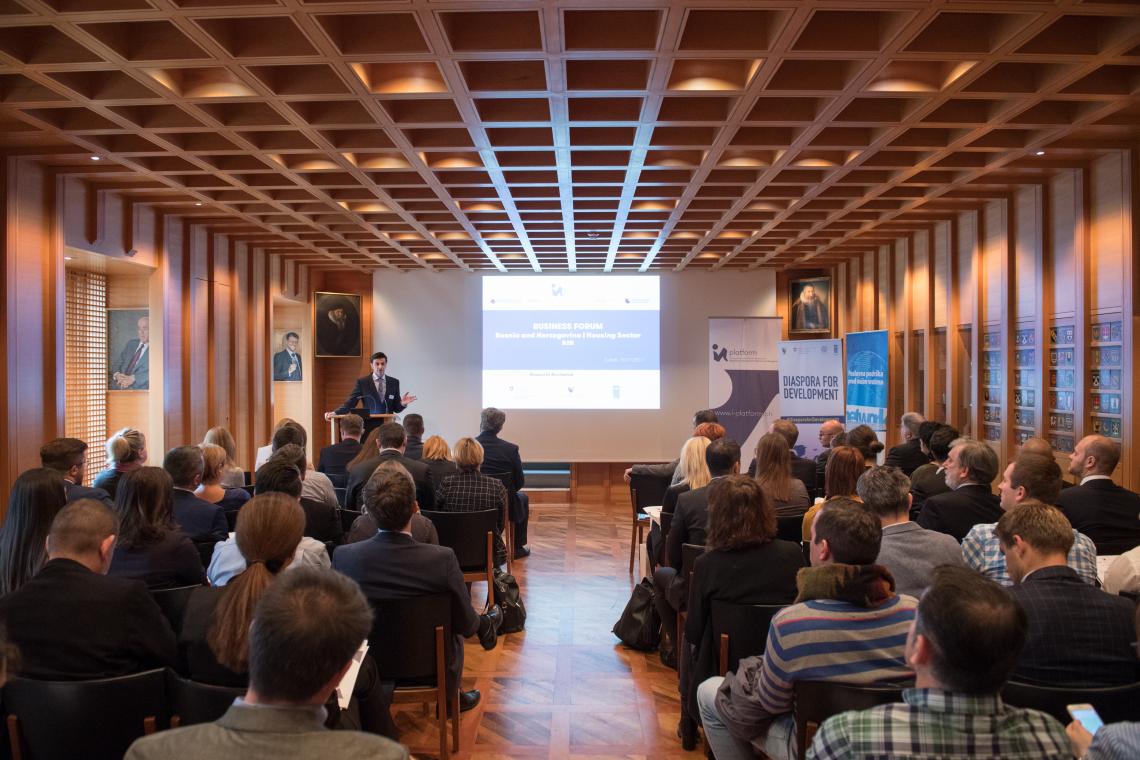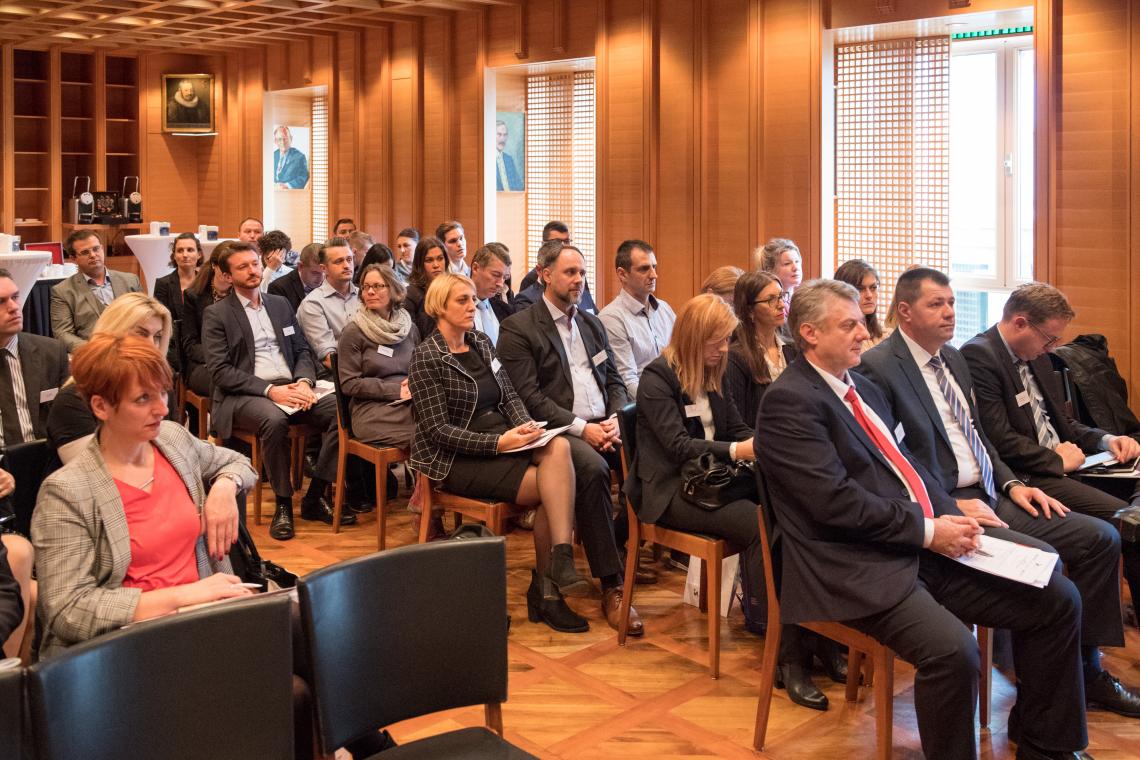Author: Christoph Aebischer (Berner Zeitung)
Switzerland provides development assistance to Bosnia and Herzegovina amounting to around 18 million Swiss francs per year. The Swiss Development and Cooperation Agency (SDC) has been increasingly relying on Bosnians and Herzegovinians living in Switzerland for quite some time now. The potential is great: around 60.000 Bosnians and Herzegovinians live in Switzerland. Today, there are around 2 million Bosnians and Herzegovinians living abroad, and 3.76 of them in the country itself. Edin Dacić, who lives in Switzerland, also engages in this. His company in Bosnia and Herzegovina employs 400 persons today. He succeeded also thanks to the support from Switzerland. This company produces, among other things, items for the furniture giant Ikea. The federal government provided its support during the establishment of the company several years ago in relation to start-up capital and knowledge of a Swiss expert, who provided expert advice to the founder. The start-up capital has been repaid a long time ago. With the support of the federal government, the University of Applied Sciences of Berne also introduced the studies for the education future managers in the wood industry. The participants from Bosnia and Herzegovina pay 1500 EUR for their participation. The remaining amount of the overall costs of 12.000 Swiss francs is covered by the SDC. In addition to this, the federal government also supports events that bring together buyers from Switzerland and producers from Bosnia and Herzegovina. Representatives of companies from Bosnia and Herzegovina have to improve their presentations, as shown by a forum held in Zurich. A buyer of a do-it-yourself store chain said that they were somewhat shy. cab/sny
DEVELOPMENT COOPERATION WITH FELLOW-CITIZENS THAT EMIGRATED
The somewhat different Balkan connection
Edin Dacić, who grew up in Switzerland, would like his success story to be repeated. The owner of a furniture factory is applying his knowledge acquired in Switzerland in the Balkans. And his contacts are supposed to open the doors for others, too.
Paintings hang in oriel-like window recesses. These portraits depict members of guilds, salesmen, entrepreneurs with a subtle tie or Baroque ruff. The hall of the Zurich five-star Widder Hotel of the Widder guild serves as a meeting place today, too. However, on this November day, one cannot hear Zurich German under the panelled ceiling. Slavic languages prevail, and one can also hear English and German. A colourful audience. People stand in groups, and the atmosphere is somewhat stiff.
Business forum in Zurich
The 84 persons present were invited by the association i-dijaspora. The purpose of the business forum is to facilitate business cooperation between producers from Bosnia and Herzegovina, which is rich in wood resources, and Swiss buyers of wood and furniture. The host is a smart, lean gentleman in a black suit. With his black hair he resembles Johnny Cash a bit. However, this man is in a considerably better shape. With his pronounced nose, he would readily fit in the picture cannon in the room. Edin Dacić is a Steering Committee member of i-dijaspora. This organisation aims to use the know-how of emigrants from Bosnia and Herzegovina to support Bosnia and Herzegovina.
Exemplary entrepreneur
Dacić is an exemplary entrepreneur; he is equally well received in the Balkans and in Switzerland. He came to Switzerland with his parents as a five-year old, and later he attended the University of St. Gallen, the elite educational institution for future managers. His company Daccomet, which he established as a 22-year old, fresh economics graduate, with the financial support of his parents, today owns two factories – one in Bosnia and Herzegovina, and the other in Serbia. They produce, among other things, furniture for the Swedish interior design giant, Ikea. In the meantime, Dacić has become responsible for around 700 employees. He succeeded at the age of 49 – also thanks to the support of Switzerland.
Young and exemplary
And now Dacić would like to go a step further. After numerous speeches and presentations, chairs are being removed from the awe-inspiring room, high tables are being set up and finger food is being served. A ''B2B'' meeting is on the agenda, which means business-to-business in the language of entrepreneurs. Representatives of 16 Bosnian and Herzegovinian companies that are present take their place at the tables in order to talk to local buyers. The two managers at table number two, Sonja Gavrić and Stefan Ostojić, are strikingly young. They are arranging samples of glued wooden plates. The table is a bit too small for the polished presentation of their company, glasses and food. These two managers, both of them 25 years old, with smiling faces, neat, are already part of the middle management of the Bosnian and Herzegovinian company Megadrvo. ''We export 95% of our products'', says Gavrić. Armin Alićić also stops at their table. He is a buyer for the do-it-yourself store chain, Hornbach. Construction timber and stone plates are on his wish list. Aličić was also born in the Balkans and grew up in Switzerland, just like Dacić. ''What I appreciate is the fact that the two of them brought wood samples. It is thus possible to inspect the quality.'' However, not everyone leaves such a professional impression as these two young managers.
Know-how from Switzerland
A lack of such young talents has created problems for Dacić in the Balkans. Following the break-up of Yugoslavia and the ensuing civil war, the previously solid educational system collapsed. Dacić is still relying on experts that are about to retire, experts that were educated in the former SFRY. Luckily, young people like Gavrić and Ostojić are coming. Between them, there is a large gap of the lost generation, as Dacić calls it. Several years ago, Dacić approached the Swiss Agency for Development and Cooperation (SDC) in relation to his problems. With their support, the University of Applied Science of Berne established a course of study in Biel for future managers in the wood sector. Gavrić and Ostojić are also attending these five modules. They pay 1500 EUR each. However, the costs amount to 12.000 Swiss francs per person, so that the difference in price is covered by SDC.
Learning the hard way and Dacia
That was not the only form of assistance of Switzerland that Dacić could rely on. Dacić remembers the time when he decided to do business in Bosnia and Herzegovina. Back then he had to learn the hard way what that meant. In short, it looked as follows: The infrastructure was decrepit, employees ruined by socialism and without any enthusiasm after years of economic decay. He tried to apply some tricks, such as a car. Dacić parked a brand new red Dacia at the factory site. It was intended as a prize for the most successful employee. The car stood at the factory entrance for months. However, the flashy temptation has not only encouraged the willingness to work. Some cunning employees outsmarted the scoring system. ''An employee had so many scores after a short period of time that it became apparent'', says Dacić. It turned out that her husband was crediting his scores to her name.
Valuable, but not expensive
However, Dacić also loves mischievousness. His plan worked out in the end. The employees discovered their ambitions. The Swiss wood expert significantly contributed to this. His assistance was invaluable. ''I bought wood factories, but I knew nothing about wood'', admits Dacić. Swisscontact, a technical cooperation foundation, then organised the cooperation with the expert. In the end, the expert's advice helped him to double the production. The costs, flights and pocket money for the expert covered by Swisscontact amounted to around 7,000 Swiss francs. Board and lodging were covered by Dacić. The expert worked free of charge. Dacić says: ''Several thousands of Swiss francs helped me tremendously''. In order to even be able to ensure sufficient seed capital and enter the wood sector in the Balkans, the entrepreneur also received two loans amounting to half a million Swiss francs each from the start-up fund of the State Secretariat for Economic Affairs (SECO). ''The money has been repaid a long time ago'', stresses Dacić. Today, his companies have a turnover of around 23,5 million Swiss francs per year.
And the business
Sonja Gavrić and Stefan Ostojić are now following Dacić's footsteps. These two managers will attend the last fourteen-day module of manager training in Switzerland next year. Employees of the Bosnian and Herzegovinian company Megadrvo are very much looking forward to this. It still remains to be seen over the coming few weeks whether the business forum paid out for them directly. Armin Aličić, a buyer for the German do-it-yourself store chain, Hornbach, treated all companies the same: He invited company representatives to submit a ''short and lively presentation'' to the chain Hornbach ''absolutely non-bindingly''. ''Bosnia and Herzegovina has wonderful wood, and cooperation would be interesting in general, also for economic reasons'', says he. The reason is the fact that production costs are low and the transport distance is short. However, only this is not sufficient to ensure business cooperation with a large client such as Hornbach. The 31-year old Aličić has to obtain quality and delivery capacity guarantees. Many of the representatives of Bosnian and Herzegovinian companies appeared somewhat timid and inexperienced. Gavrić and Ostojić stood out in a positive way. Aličić, touched by the conversations on that day, keeps his fingers crossed for both of them.
MIGRATION AND ECONOMY IN FOCUS
The annual development assistance of Switzerland for Bosnia and Herzegovina amounts to around 18 million Swiss francs. Now also emigrants from Bosnia and Herzegovina, who are part of an enormous diaspora, should support the progress of the country.
60,000 Bosnians and Herzegovinians live in Switzerland. They are part of the relatively largest diaspora in the world in comparison to the size of the population in the country of origin. A total of two million of them live abroad, whereas 3.76 million of persons live in Bosnia and Herzegovina itself. Bosnians and Herzegovinians who emigrated are sending millions to their home country. According to official data, remittances constitute 12% of the GDP. Unofficially, this number is even higher. In spite of emigration and lack of qualified personnel, the unemployment rate in the country amounts to 43%. However, the shadow economy is booming. An average monthly salary amounts to 300 EUR – plus numerous social contributions required by law. Many Bosnians and Herzegovinians are escaping abroad even today, fleeing the enormous corruption and lack of productivity.
Using the diaspora
The association i-dijaspora, as the organiser of the business forum, aims to do something about it and use the know-how and skills of Bosnian and Herzegovinian emigrants for the benefit of Bosnia and Herzegovina. The Swiss Agency for Development and Cooperation (SDC) provides financial support. The association receives financial support amounting to 500,000 Swiss francs per year in the period 2017-2019. Switzerland engages in Bosnia and Herzegovina in the framework of transitional cooperation. This assistance in the field of capacity building for poorer former socialist countries is part of the development cooperation of Switzerland. The development assistance budget for Bosnia and Herzegovina for the period 2017-2020 amounts to 74 million Swiss francs. Measures aiming at job creation are paramount. In this way, an effort is made to prevent migration and create business opportunities for the Swiss economy.
''Skills for Jobs'' programme
Switzerland also supports investments of Bosnian and Herzegovinian citizens living in Switzerland, who would like to start a business in their home country. The studies for middle management from the wood sector mentioned in the lead article are part of professional education project ''Skills for Jobs''. The studies financed from development assistance funds cost 12.000 Swiss francs per person and consist of five modules. Young employees from 30 companies from Bosnia and Herzegovina and Serbia have had the possibility to attend this type of education since 2015. Trainers were trained for this purpose. SDC will withdraw at the end of 2018. The University of Applied Sciences of Berne, Department for Architecture, Wood and Civil Engineering, will primarily conduct quality controls. Bosnia and Herzegovina is supposed to assume responsibility for the further implementation of the studies. According to the Swiss Agency for Development and Cooperation (SDC), the course of the project has been promising so far. In two or three years it will become visible whether the investment is sustainable over the long term. Bosnia and Herzegovina has traditionally had a strong wood sector. Sufficient raw materials are available, given the fact that forests cover more than 50% of its territory. Following the break-up of Yugoslavia and the ensuing civil war, the infrastructure collapsed, and the previously solid education of craftsmen disappeared. Victims are persons who grew up in the period 1980-1990. They are called the lost generation. cab
Source: Berner Zeitung






